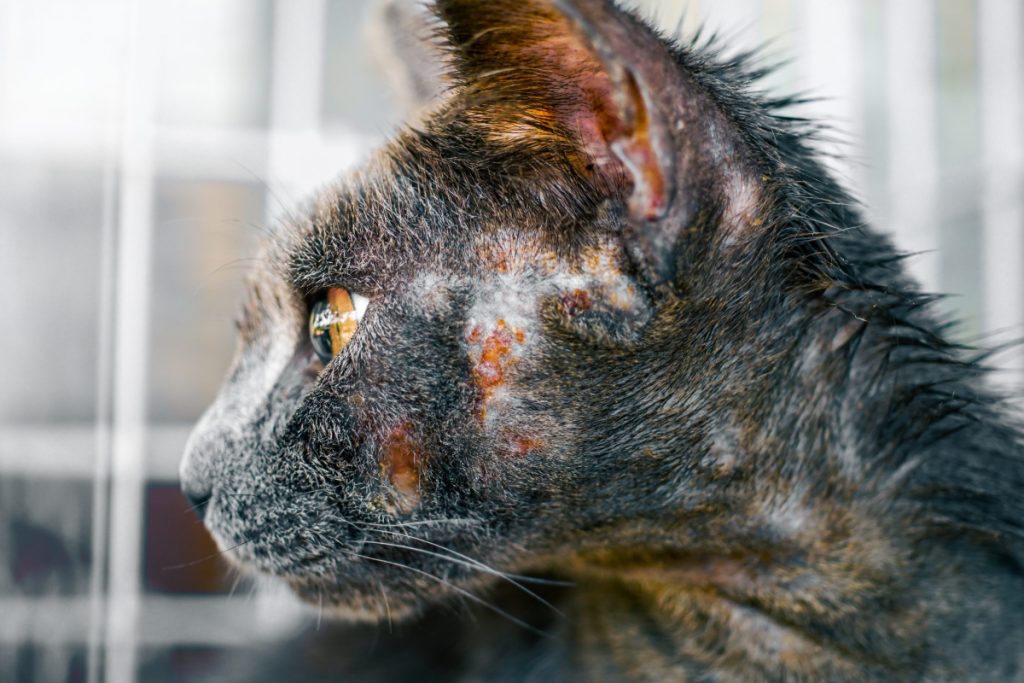Ringworm in Cats

Ringworm in Cats: An Essential Guide for Dunedin Pet Owners
Owning a cat can bring endless joy and companionship, but it also means taking on the responsibility of your pet’s health. One issue cat owners in Dunedin may face is an infection called ringworm. Despite its misleading name, ringworm isn’t a worm but a fungal infection that can impact your cat’s skin, fur, or nails.
Identifying Symptoms in Cats
Being aware of ringworm symptoms can help you catch the infection early, leading to a smoother and quicker recovery process. Common signs of ringworm in cats include:
- Round patches of hair loss throughout the body
- Broken or brittle hair around these bald patches
- Red, scaly, or inflamed skin within the hair loss zones
- Over-grooming or itching in a specific area
It’s important to note that not all cats with ringworm will exhibit clear symptoms, making this a somewhat elusive ability to diagnose based on appearances alone.
Schedule an appointment with Dunedin Animal Medical Center as soon as possible if you notice any of these signs. Our experienced vets can perform a thorough check-up and offer appropriate treatment solutions.
Consequences of Neglecting Ringworm
Ignoring ringworm can lead to serious complications. The fungus can spread across your cat’s body, causing widespread hair loss, skin discomfort, and even secondary skin infections. Moreover, ringworm can pass from pets to humans, posing a potential health risk to your household.
Prevention Strategies and Home Treatment Options
While treating ringworm is possible, preventing the infection is certainly a preferable route. Regular grooming, maintaining a clean living space for your cat, and limiting contact with stray or infected animals can help in ringworm prevention.
Home treatment options include over-the-counter antifungal creams, but their effectiveness is typically inferior to treatments prescribed by a vet. Also, the risk of misusing such products can potentially harm your pet rather than help.
Why Professional Veterinary Care is Critical
Home treatments might seem convenient, but they cannot replace professional veterinary care. An accurate diagnosis from a vet is the starting point for an effective ringworm treatment plan. Veterinary treatments might involve topical therapies, oral medication, or a mix of both, depending on your cat’s specific condition.
In short, although ringworm in cats is a common issue, it should never be taken lightly. Prompt recognition and treatment are key to keeping your beloved feline friend healthy and content. At Dunedin Animal Medical Center, we’re dedicated to offering top-notch care for your pets. If you suspect your cat might be suffering from ringworm, don’t hesitate to book an appointment with us. Let’s keep our furry friends healthy, together!